Description
ABSTRACT
Section 20 of the Admiralty Jurisdiction Act 1991 – Limited Interdiction or Tempering the Doctrine of Pacta Sunt Servanda
Olabode Olanipekun*
The objective of this presentation is to benchmark the provisions of section 20 of the Admiralty Jurisdiction Act, 1991 (AJA), against the time honored and judicial sanctioned contractual principle of pacta sunt servanda which, anticipates that parties to a contract will adhere strictly to its terms in all its ramifications including where/when there is dispute resolution clause therein, stipulating the venue of the determination of any potential dispute that arises from the contract. The paper primarily views the provisions of section 20 of the AJA (which provides that any contract which ousts the jurisdiction of Nigerian courts in the circumstances listed will be void), from a Nigerian point of view, in terms of the reaction of the national courts of Nigeria and the necessity, advantages or otherwise of including and retaining such provisions in the corpus of Nigerian law, despite the clear exception it makes to the doctrine of pacta sunt servanda, in the event that parties to a maritime contract agree to a dispute resolution venue outside Nigeria under certain circumstances. The paper considers the issues, noting the position in other jurisdictions, and concludes that section 20 of the AJA does not in itself negate the principle of pacta sunt servanda as autonomy to contract should not detract from compliance with national laws.
Keywords: Admiralty Jurisdiction, Contract, Pacta Sunt Servanda, Maritime Claim.
INTRODUCTION
The survivalist nature and requirement of human livelihood, necessitates the existence of commerce and trade in varying degrees of complexities. Commerce can be transnational or local, but in whichever form, its origin will date very closely with the origin of man and the continued existence of mankind will inextricably be intertwined with commercial activities of trade, premised on contract on a daily basis.
The elements of a valid contract explain the fundamentals of a contract to wit: offer, acceptance, intention and capacity to create contractual relations and consideration.1 The common trend that runs through all the elements of a valid contract are indicative, clearly, of agreement. It is on this basis that the meeting of minds expressed in the Latin maxim consensus ad idem has been
indisputably agreed to be the most important indicator of a valid contract. A. Augie JCA (as she then was, now JSC) in Greif (VI) Containers Plc v O.P & Industries Ltd2 found that:
There must be a meeting of minds in contract matters. In other words, parties must reach a consensus ad idem for a contract to be regarded as binding and enforceable… The two or more minds must meet at the same point, event or incident. Where they say different things at different times, they are not ad idem and no valid contract is formed. The meeting of minds of contracting parties is the most crucial and overriding factor or determinant in the law of contract.
* LL. B (Lagos), BL, LL. M (Wales). Managing Partner, Wole Olanipekun & Co. Lagos and Abuja, Nigeria.
- Majekodunmi v N. B. (1978) 3 SC P. 119, Abba v Shell Dev. Company of Nigeria (2013) LPELR-20338.
- (2015) 8 NWLR (Pt. 1461) 260 at 281, paras A.

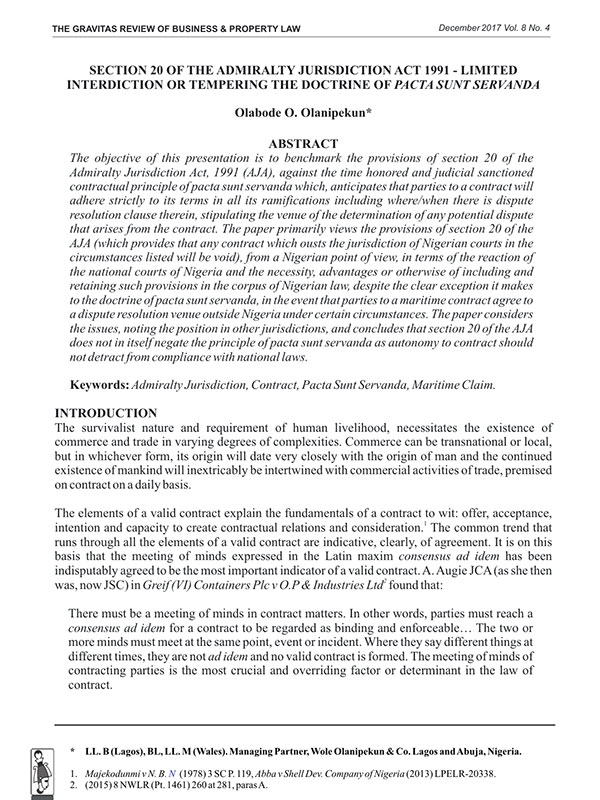
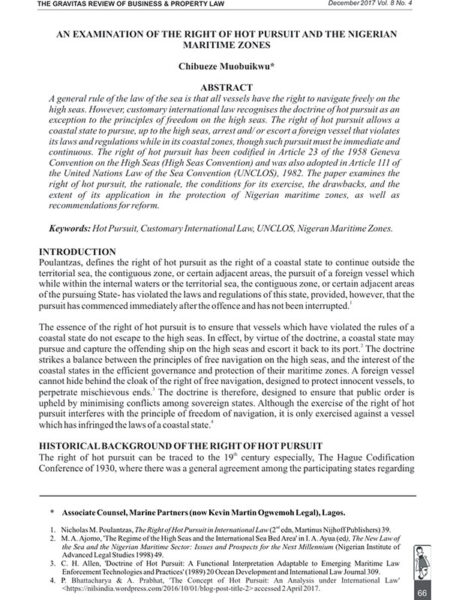
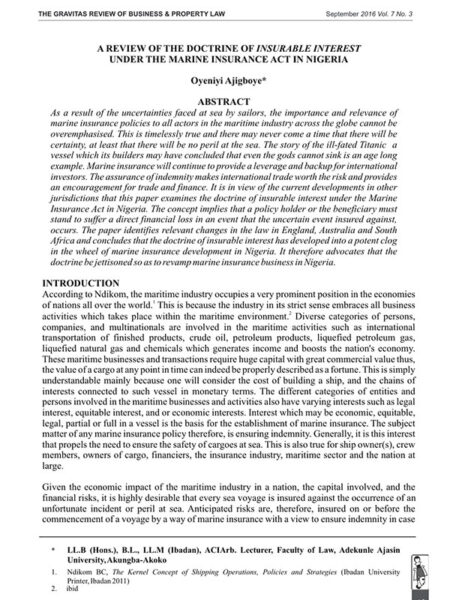
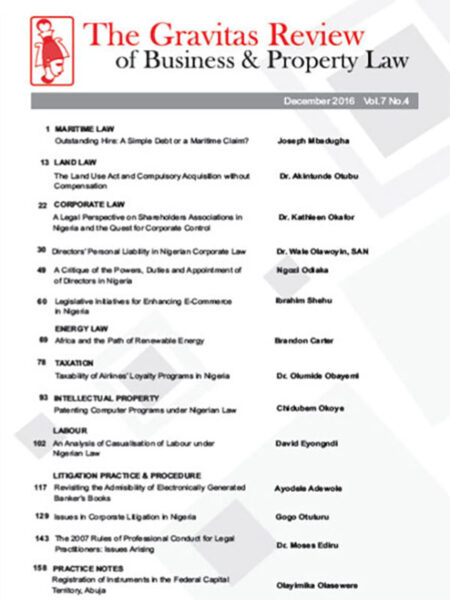
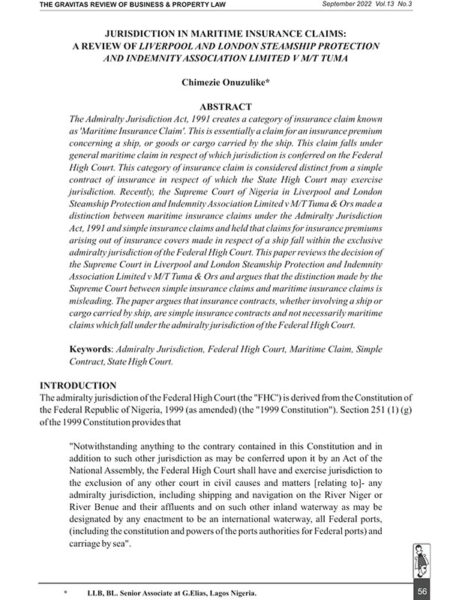


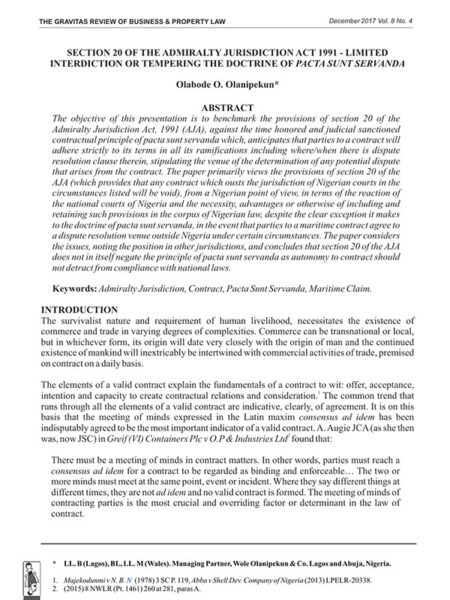
Reviews
There are no reviews yet.